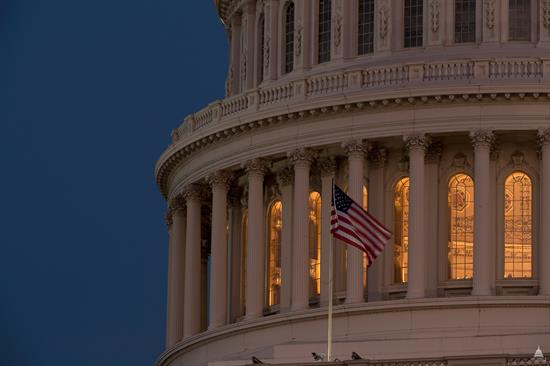Mass Delegation Seeking Update from HHS on Commonwealth's Request for Personal Protective Equipment from Strategic National Stockpile
Washington,
March 20, 2020
Massachusetts Hospitals Anticipating Shortages of Equipment Needed to Protect Frontline Workers from COVID-19
WASHINGTON -- Today, Congressman James P. McGovern (D-MA), Chairman of the House Rules Committee, joined the Massachusetts Congressional Delegation in writing a letter to the U.S. Department of Health and Human Services (HHS) requesting an update on the status of the Massachusetts Department of Public Health's (MDPH) request for personal protective equipment from the Strategic National Stockpile (SNS). "Health care providers in the Commonwealth have been working around the clock to meet the urgent demands of the coronavirus disease 2019 (COVID-19) public health emergency," the lawmakers wrote. "We urge you to grant the request without delay." On March 5, 2020, the MDPH requested protective equipment from the SNS to help combat COVID-19 outbreaks in the state. Specifically, they requested 750,000 each of N95 Respirator Face Masks, Surgical Masks, Non-Sterile Gloves, Eye Protection, Powered Air Purifying Respirators, and Surgical Gowns. However, according to state officials, the state has only received roughly 10% of the supplies they have requested. Since the request was submitted, the Commonwealth has declared a state of emergency, and the number of confirmed cases has ballooned to over 200, with hundreds more under quarantine. As these cases climb, Massachusetts hospitals, community health centers, and other facilities are facing or are imminently anticipating shortages of personal protective equipment needed to ensure that frontline workers do not risk infection or contribute to the spread of COVID-19, with some hospitals resorting to reusing N95 respirator masks in order to conserve their limited supplies. The lawmakers asked HHS to provide an update on MDPH's request and asked the agency a series of questions regarding extra resources for states who are experiencing shortages of protective equipment. "Protecting our frontline health care workers by providing personal protective equipment must be a top public health priority," the lawmakers continued. |
Press Releases
Constituent Services
Read More
How can I help?
From getting answers from government agencies to cutting through red tape to get you results, my office is here to help.
